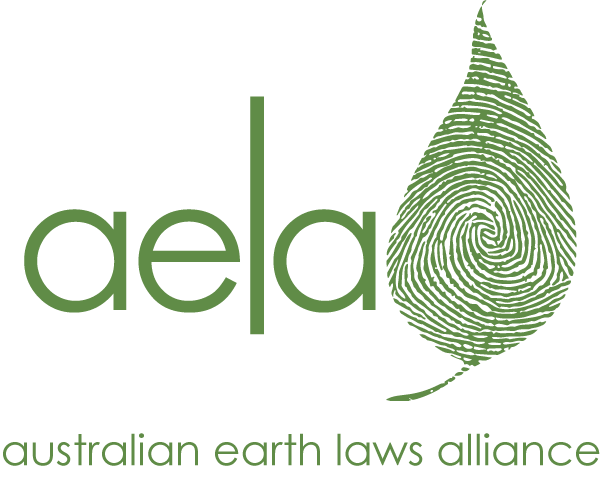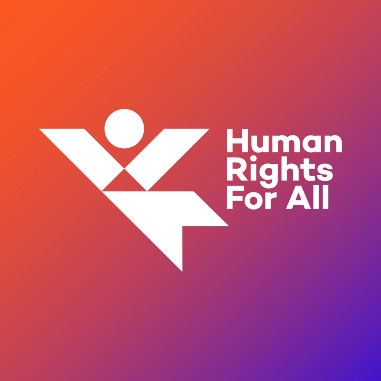-
95% graduates employed
-
Top 10 Catholic universities globally
-
Top 40 young universities worldwide
Bachelor of Commerce/Bachelor of Laws
Course information for - 2026 entry
International
- Domestic
- International
- Domestic
- International
Offered at 2 locations
- Melbourne
- North Sydney
- Melbourne
- North Sydney
- Duration
- 5 years full-time or equivalent part-time
- CRICOS Code
- 079432A
- Fees (first year)*
- $36800
- Start dates
- February 2026, July 2026
Overview
Study a Bachelor of Commerce/Bachelor of Laws for a degree that can be tailored to your career aspirations.
Upon graduating you'll be ready to launch straight into your career thanks to our Future Ready employability program, designed to systematically build each of the elements of your personal brand: your professional identity; experience; job-ready skills; and networks.
As part of your law studies you’ll gain the skills and knowledge to become a confident, ethical lawyer who can make a real contribution to the legal profession and the community. And by pairing law with commerce, you’ll have the opportunity to expand your career outcomes to gain professional accreditation in human resource management, accounting, marketing and law.
Our unique Business Foundation Program, co-created with industry and integrated across all our business courses, assists you as you transition to university study and provides a solid foundation of business skills. Plus, the Business Foundation Program helps you gain an understanding of different areas of business, so you can identify your personal interests before choosing your specialisation.
During your law degree, you’ll get a lot of hands on experience – such as mooting competitions and pro bono placements. While studying commerce, you will take part in community and industry placements, and learn through gamified business simulations based on real-world situations. Plus, artificial intelligence (AI), machine learning, data analytics, cloud skills and cloud data services are wired into your studies – so you can tick Microsoft certification off your to-do list and get an edge in the job market.
Students who have completed 120 credit points of law units with a grade point average of 5.75 and above may apply to complete an honours degree.

Professional experience
You’ll gain up to 185 hours of workplace and community experience before you even graduate.
Work placement
As part of our Work Integrated Learning program you’ll gain 105 hours of industry placement in your area of specialisation. We have embedded employability into your degree with our Future Ready program where we build on your professional skills each year, supporting you every step of the way. These placements will give you the confidence, knowledge and skills to prepare for your future profession. You’ll learn to apply what you learn in the classroom to real life scenarios by working with chartered accountant firms, financial planners, banks, insurance companies, superannuation funds.
Community engagement
As part of your degree you’ll have the opportunity to work with not-for-profit organisations with 35 to 80 hours of community engagement experience. You’ll foster knowledge and understanding and its application within communities experiencing marginalisation and disadvantage while applying ethical personal and professional skills developed during your studies at ACU.
Professional recognition
This degree has been approved by accreditation authorities as a prerequisite for admission to legal practice in New South Wales, Queensland and Victoria, and is recognised for the purposes of admission in other Australian states and territories.
In addition, students may also satisfy academic requirements for entry into professional associations. Check with your Course Coordinator for the available accreditation options.
Accreditation
The Bachelor of Commerce/Bachelor of Laws is accredited by the Legal Profession Admission Boards in New South Wales, Queensland and in Victoria. Graduates with both a major and minor in Accounting, are eligible for membership of the Certified Practicing Accountants (CPA) Australia, Chartered Accountants Australia and New Zealand and Institute of Public Accountants. Additionally, they will receive EPAS accreditation from the European Foundation for Management Development (EFMD). Graduates who complete the Human Resource Management Major in the Bachelor of Commerce are eligible for membership of the Australian HR Institute, and graduates who complete the Marketing Major are eligible for graduate membership of the Australian Marketing Institute.

Careers
Our graduates have pursued careers in:
- the legal profession as lawyers, barristers or solicitors
- in-house counsel
- accounting and finance
- banking
- business analysis/development
- management
- human resources
- marketing or sales
Industry partnerships
ACU works with a variety of industry partners:
- Acrath
- Adecco
- Brisbane Paralympic Football Program
- Credit Suisse
- Highered Global
- Impact
- Jesuit Refugee Service
- JPMorgan Chase
- Mars
- North Sydney Innovation Network
- Toongabbie
Course details
Course structure
To complete the Bachelor of Commerce/Bachelor of Laws, a student must complete 400 credit points (cp).
Available Major(s)
-
Accounting
Accounting is the method of evaluating and reporting the financial health of businesses and individuals. In studying the accounting major sequence, you’ll learn to analyse, research and make informed recommendations about a broad range of accounting problems and issues. You’ll also become proficient in internationally-recognised accounting principles, practices and techniques and apply them to a variety of situations. You’ll prepare for a rewarding career as a professional accountant, tax professional, business advisor or manager.
Choose accounting and you’ll be given the skills, knowledge and accreditations you need to embark on a career that can provide value to almost any kind of organisation or business – regardless of whether the wider economic outlook is a boom, bust, bull market, or recession.
Human Resource Management
A business is only as good as its employees – and employees only thrive when there’s a good human resources team behind them. Human resource management (HRM) plays a critical role in every organisation. As an HRM professional, you’ll work to get the best from your people for the entire employment cycle. It’s a broad field, touching all parts of an organisation. It’s also a rapidly growing profession, with both jobs and income levels forecast to increase in the future. So why not get in on the ground floor with this human resource management major sequence?
Management
Scale up your career in management. As a manager in the making, you’ll empower your organisation, and its people, to succeed. From providing strategic guidance to supporting and motivating your team, you’ll make sure everything goes according to plan. Combining theory with practice, your studies in management will also teach you how to build trust, manage with empathy, promote sustainability, and align your teams towards good business and the good of society. Our courses have a global emphasis, so you’ll be prepared to take on a number of roles and enter a wide range of industries and businesses, including administration, operations, international trade – even a CEO – anywhere in the world.
Marketing
Be the go-between in the business world, connecting brands, products and services to new markets and customers. As a graduate of the marketing major sequence, you’ll use your creativity and insight to understand consumer behaviour, communicate brand and product value, monitor dynamically changing trends, find new markets for products and services, develop business strategies and work with a range of cutting-edge digital technologies.
Data Analytics
Studying the data analytics major sequence at ACU will give you insight into the fundamental concepts behind data and databases and the state-of-the- art techniques and technologies required to analyse large volumes of data. You’ll be introduced to real-world applications that can be derived from a thorough understanding of the data at your fingertips.
Careers in data analytics are in great demand in Australia and around the world. These skills are highly transferrable and continuously growing and developing. Good data analysts have more than a knack for numbers. They have an excellent eye for detail, possess good computer skills, and can identify key trends and patterns from a sea of information. They play an important role in their organisations – collecting and analysing a wide range of data types to gain game-changing insight. Data analysts can make informed recommendations to management to help improve and optimise the business – potentially changing its fortunes in the process. In an increasingly digital world, good data analysts are instrumental to their organisations.
Course map
Graduate statement
AQF framework
Double Bachelor - Bachelor/Bachelor - AQF Level 7Overseas study available
You’ll have the opportunity to study the university Core Curriculum at our Rome campus. A number of elective units in this degree are also available to study overseas.
Entry requirements
An applicant must also comply with the Admission to Coursework Programs Policy.
To be eligible for admission to the course, an applicant must have completed the following prerequisites at year 12 level, or equivalent:
| State | Prerequisites |
|---|---|
New South Wales | English (Standard) (Band 3) or English as an Additional Language or Dialect (EALD) (Band 4) |
Queensland | English (Units 3 & 4, C) |
Victoria | Units 3 and 4 – a study score of at least 30 in English as an Additional Language (EAL) or 25 in any other English. |
International students need to meet the English Language Proficiency requirements as defined in the Admission to Coursework Programs Policy.
Disclaimer: The course entry requirements above are for 2026 Admission. Refer to your relevant Tertiary Admission Centre website for future years' entry requirements.
View transparency admission information
International applicants
If you’re an international applicant you’ll need the equivalent of an Australian Year 12 Certificate.
Find the equivalent qualification for your country
You’ll also need to comply with the Admission to Coursework Programs Policy , including the English Language Proficiency requirements.
If you’re an international student completing one of the following qualifications, you will need to apply for admission through your local Tertiary Admission Centre (TAC) and be assessed on your performance in these studies (i.e. your ATAR or equivalent):
an Australian Year 12 qualification (either outside or in Australia)
an International Baccalaureate (IB) Diploma
a New Zealand National Certificate of Educational Achievement (NCEA) Level 3.
Adjustment factors
If you’re currently completing Year 12 you may be eligible for adjustment factors that can boost your rank and help you get into your desired course.
Adjustment factors may be applied to your TAC application if you study particular subjects, attend schools geographically close to our campuses or in certain regional areas, apply as an elite athlete or performer or meet certain other criteria.
Inherent requirement
There are essential components of a course or unit that demonstrate the capabilities, knowledge and skills to achieve the core learning outcomes of that course or unit. You will need to be able to meet these inherent requirements to complete your course.
Learn more about inherent requirements for your course and how they affect you
Pathways
Pathways into course for international applicants
If you don’t currently meet the direct entry requirements for admission to your chosen program, don’t worry. Our range of pathway programs can help you build the language proficiency, academic skills and confidence you need to succeed.
Further study
A student who has completed at least 120 cp of LAWS units of the degree with a grade point average (GPA) of at least 5.75 may be eligible for Admission to the Bachelor (Honours degree).
An applicant must also comply with the Admission to Coursework Programs Policy.
A student who achieves an Honours at a minimum level of Second Class Division A (Distinction average) may be eligible for Admission to the degree of Doctor of Philosophy (PhD).
Meeting the eligibility requirements for admission is not in itself a guarantee of admission. The candidate’s potential to undertake research, the quality and feasibility of the research proposal, the availability of appropriate supervision and the referee’s reports will all be taken into consideration. Please refer to Higher Degree Research Regulations.
A candidate for the degree of Doctor of Philosophy must comply with the Higher Degree Research Regulations.
Fees
Course costs
- Unit fee: $4600
- Average first year fee: $36800
- Estimate total cost: $184000
The Tuition fees quoted above are for commencing students in the current year who undertake a normal full-time load. The Unit Fee is based on a 10cp unit. Fees are reviewed annually.
Tuition fees for continuing students may increase by up to 3 percent each year for the minimum duration of the course as provided on your electronic Confirmation of Enrolment (eCOE). Students who continue to study beyond the minimum duration will have the relevant annual commencing rate applied to their fees for subsequent study periods.
Payment options
You should be able to concentrate on getting good marks instead of worrying about how you’ll pay your fees. We have a number of options that can help you ease the financial burden, including government assistance, scholarships and income support.
Scholarships
You could be eligible for one of the hundreds of scholarships we award each year to help students from across the university with the cost of studying, accommodation or overseas study opportunities. Some of our scholarships are awarded on the basis of merit, but these aren’t just for the academically gifted; ACU also recognises excellence in community engagement and leadership. We also offer a range of scholarships for those who may be struggling financially or who have faced other barriers to accessing education.
How to apply
International applicants
Direct application
Apply nowInformation on the application procedure
International students undertaking an Australian Year 12 qualification should apply through the relevant tertiary admissions centre.
Deferment
Yes. See Defer your offer.
Students with a Student Visa will need to complete the program in minimum duration, study at least one subject on-campus each semester and must not undertake more than 33% of the program online.
Staff Profile
Mr Ian Lam
Lecturer and Pro Bono Coordinator - Thomas More Law School
Ian Lam is a lecturer in the Thomas More Law School. Before being transferred to the Law School, Ian taught financial accounting and taxation law in the Peter Faber Business School of ACU. Currently, Ian is a teaching scholar specialised in Commercial Law and Taxation Law.
Ian is also the National Pro Bono Program Coordinator of the Law School. The inclusion of the Pro Bono Legal Professional Experience at the Thomas More Law School recognises the trend that licensing and accreditation bodies around the world are increasingly requiring lawyers to undertake pro bono legal services.
As the Pro Bono Coordinator, Ian is responsible for disseminating information about Pro Bono Legal Professional Experience generally, connecting with long-standing and new pro bono partners, promoting pro bono opportunities, and approving proposed pro bono legal placements before students commence their engagement.
Dr Dina Afrianty
Lecturer, Thomas More Law School
Dr Dina Afrianty is an Indonesian scholar who specialises in women’s rights, disability rights, gender and Islam. Prior to moving to Australia in 2014 she was a senior lecturer and Head of Department at the Syarif Hidayatullah State Islamic University in Jakarta. She is the founder of the Australia-Indonesia Disability Research and Advocacy Network (AIDRAN) which is an interdisciplinary forum that undertakes innovative training and research activities. Dina has a strong record of grant funding, particularly through international development programs funded by the Australian Department of Foreign Affairs and Trade.
Dina’s current work focuses on women’s rights and disability rights awareness and public policy reform. Her recent research and training addresses the capacity of officials and administrators in the education and health sectors to implement internationally recognised human rights standards with respect to persons with a disability. She also has extensive experience in collaborating with Indonesian legal aid and advocacy organisations. Dina has contributed as an expert to UNESCO Right to Education Global Project in 2022 and expert member for the ASEAN-EUROPE Foundation to work on developing Outlook 2030: Inclusive and Diverse Education in Asia and Europe. She has a strong record of academic publication and is now a member of the Australian Feminist Law Journal.
Testimonial

“I chose to study a Bachelor of Commerce/Bachelor of Laws because I enjoyed studying commerce and business studies in high school, participating in debates and helping people understand their rights. I was attracted to the small class sizes, personalised experience, leadership opportunities and the pro bono component of the degree. The personalised experience especially rings true as the lecturer of my first unit inspired me to persevere through a difficult unit and encouraged my active participation in class to ensure I understood the content. Pro bono allowed me to put the content I had learnt into practice and develop my legal skills, which included legal research and communicating with a variety of clients and stakeholders.”
Have a question?
We're available 9am–5pm AEDT,
Monday to Friday
If you’ve got a question, our AskACU team has you covered. You can search FAQs, text us, email, live chat, call – whatever works for you.



.jpg?rev=e19a9d3a60e248edaa3768cc97c382c7&la=en&h=328&w=848&hash=3ED0BC522A3D745EEE873350B4300F11)

.jpg?rev=27f3e048b41845b18310aa6a53fea71d&la=en&h=94&w=172&hash=E5D87AE197E344F4025B902A64039D49)

